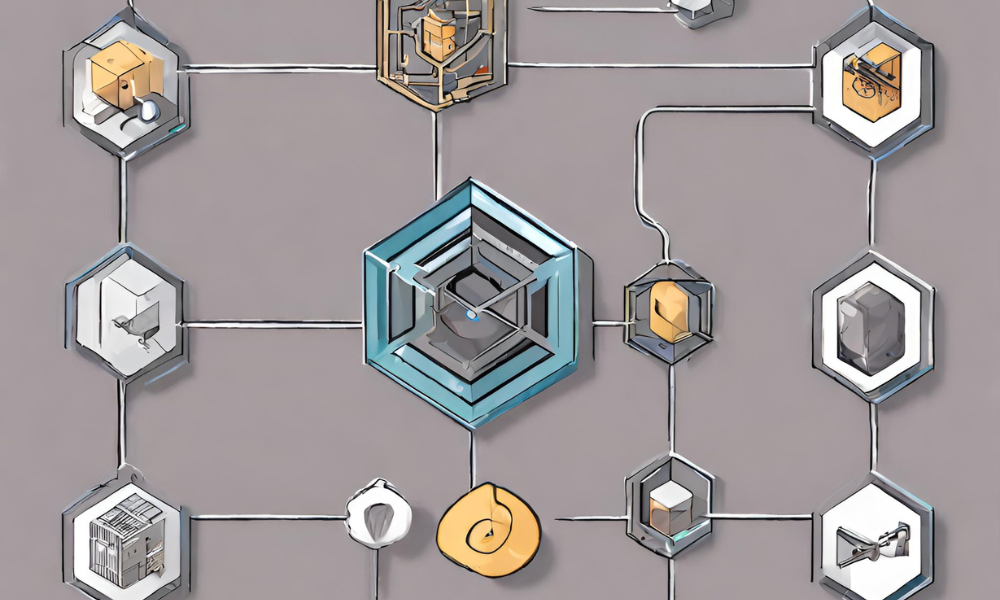Have you ever wondered what keeps the blockchain ticking? It’s like a digital symphony, and every musician is a node. However, not all nodes are created equal. They come in different flavors, each with its unique role in this blockchain orchestra. So, let’s take a backstage tour to meet these unsung heroes of the blockchain world.
What Exactly is a Node in Blockchain?
Imagine a node as a savvy individual in a vast network, each with a specific job to keep this blockchain party going. They’re the ones passing notes (data) around, making sure everyone’s on the same page. Without them, the whole system would be like a rock concert without a sound technician – chaotic and untrustworthy.
The Different Types of Nodes in Blockchain
1. Full Nodes: The Librarians of Blockchain
Think of full nodes as the librarians of the blockchain world. They’ve read every book (block) in the library and remember all the stories (transactions). These nodes are the rule enforcers, making sure every transaction follows the blockchain’s strict set of library rules.
2. Light Nodes: The Efficient Assistants
Light nodes are like those efficient assistants who know exactly where to find the summary of the book you need. They don’t bother with the whole library; they just get the gist and keep things moving smoothly, especially for devices that can’t handle the whole blockchain encyclopedia.
3. Mining Nodes: The Treasure Hunters
Here come the adventurers, the mining nodes. Their quest? To solve complex puzzles that add new blocks to the blockchain. Think of them as treasure hunters who get a golden coin (a.k.a. cryptocurrency) as a reward for their successful quests.
4. Masternodes: The VIP Members
Masternodes are like the VIP members of the blockchain club. They have special access and perform exclusive tasks that regular nodes can’t. But to be part of this elite group, they need to make a significant investment. Talk about paying for a premium membership!
Why These Nodes Matter
Each node type brings something special to the table:
– Full Nodes: They’re like the guardians of the blockchain, ensuring everything runs as it should.
– Light Nodes: These nodes are the everyday heroes for the average Joe, making blockchain accessible to all.
– Mining Nodes: The backbone of the network’s growth, adding new pages to the blockchain’s story.
– Masternodes: The innovators, bringing new features and playing a crucial role in decision-making.
Node Types Across Various Blockchains
From Bitcoin’s reliance on full nodes for transaction validation to Ethereum’s mix of full and light nodes, each blockchain has its unique setup. Solana and Polygon add their twists, with validator nodes and Heimdall nodes, respectively, each playing a part in the blockchain’s functionality.
So, how is Torus blockchain different from the others?
Torus takes a different path, influenced by the Lachesis Consensus Algorithm and DAG technology. It’s like they’re using a different kind of music sheet for their blockchain symphony. They have User Nodes for regular transactions, Validator Nodes for maintaining integrity, and Event Blocks, which are like the records of every note ever played in their symphony.
This structure enables Torus to achieve high transaction throughput (up to 300,000 transactions per second) and robust security, leveraging the asynchronous nature of DAG and the Byzantine Fault Tolerant characteristics of the LCA. The focus is on scalability and security, aiming to prevent issues like replay attacks and ensuring the reliability of transactions across the network.
Conclusion: The Importance of Nodes in Blockchain
Understanding the types of nodes in blockchain is like knowing the players in a band. Each node, whether it’s a full node, light node, mining node, or masternode, plays a critical role in the blockchain’s performance. As this technology evolves, these nodes will continue to be pivotal in maintaining the network’s health and efficiency.
Remember, in the blockchain world, the strength lies in its nodes. Knowing them is like holding the key to this revolutionary technology.
